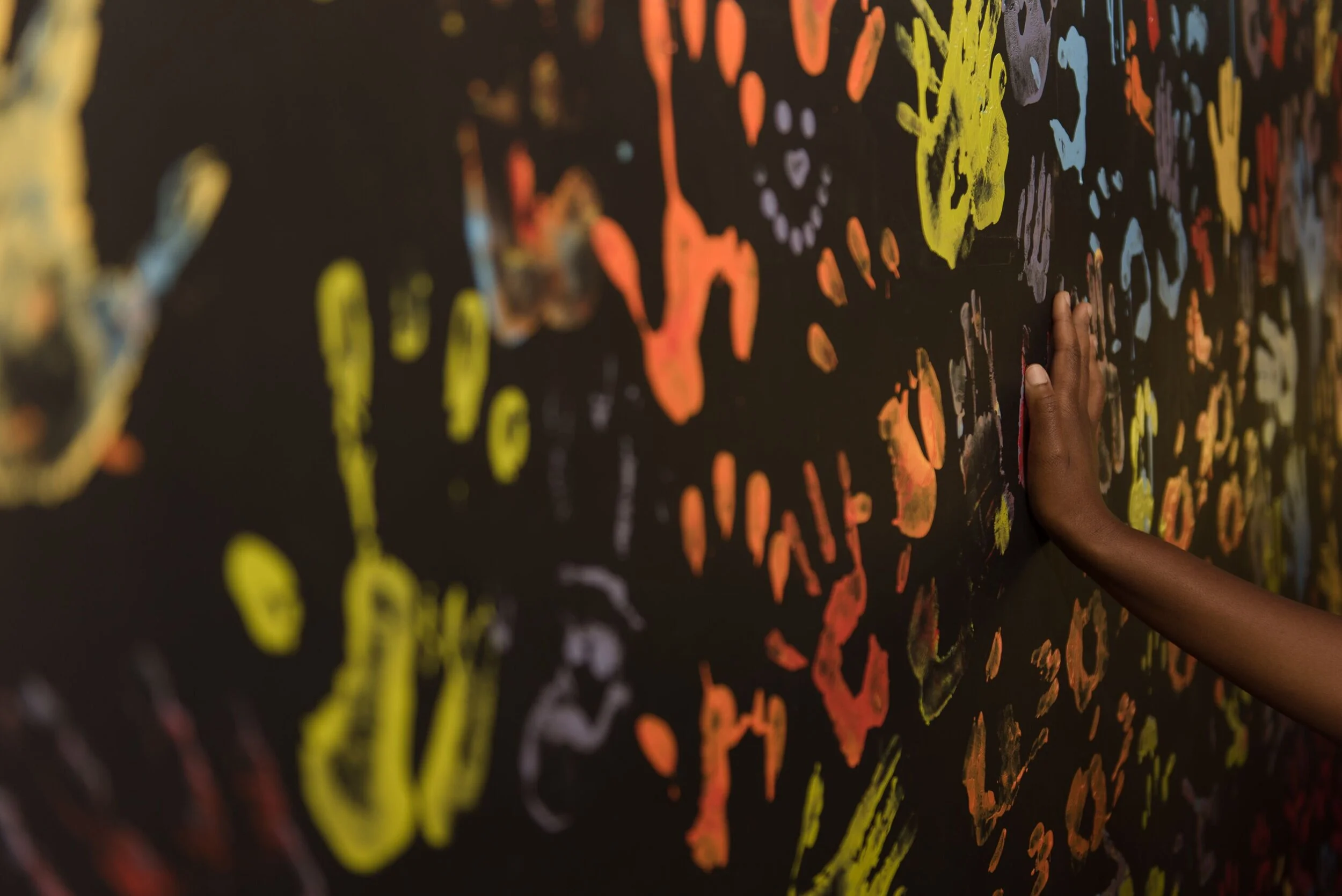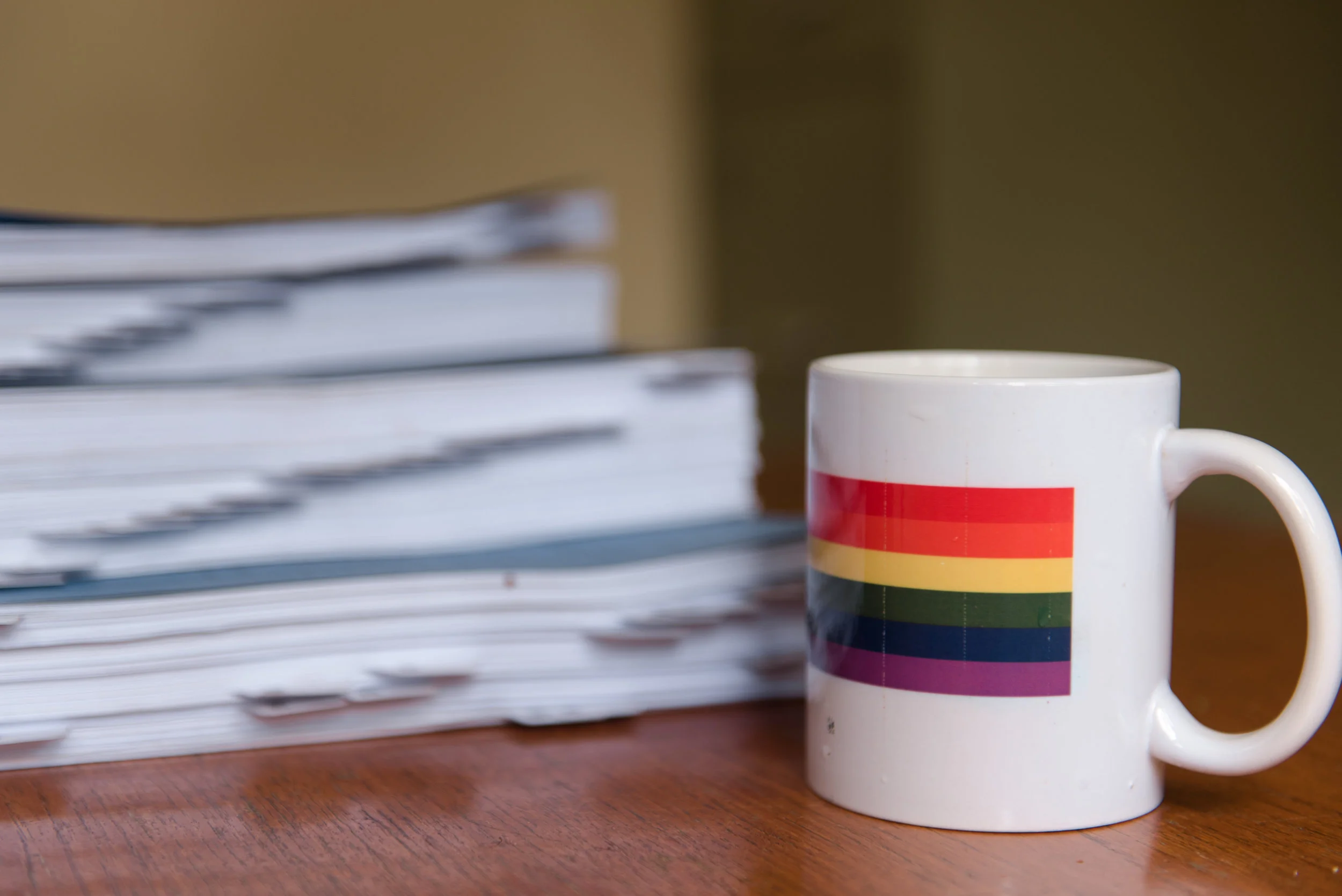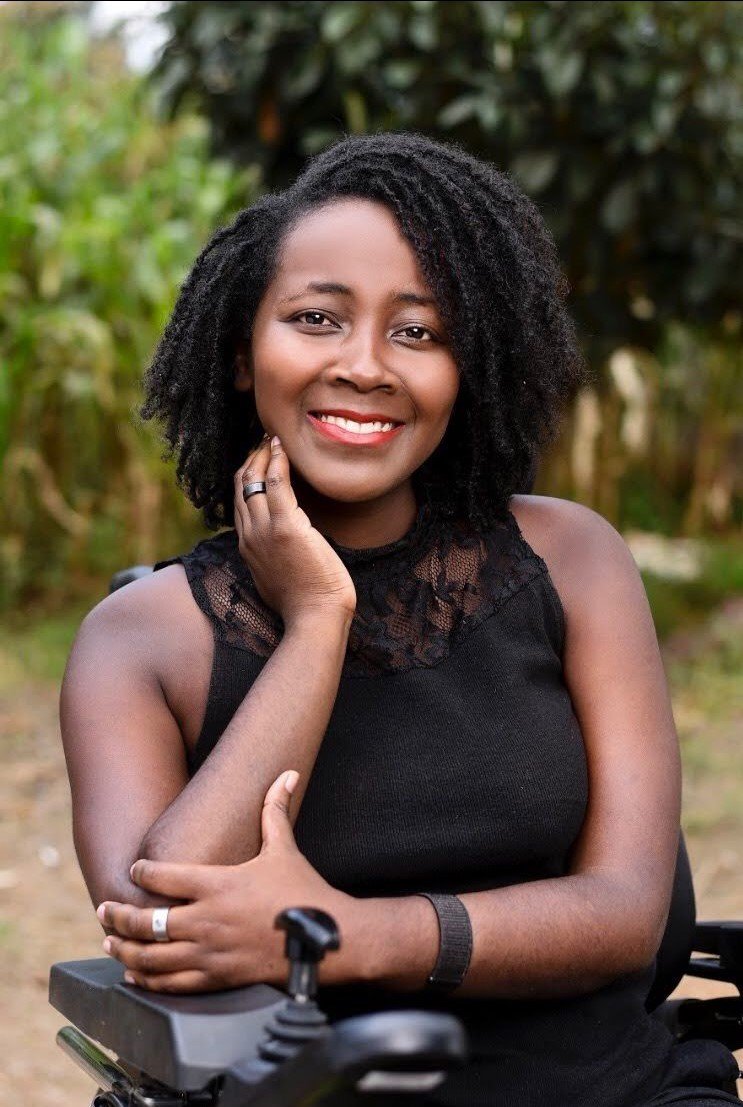




History of NGLHRC
History of NGLHRC
Founded by six young legal advocates, The National Gay and Lesbian Human Rights Commission (NGLHRC) announced its foundation at its inaugural Gay and Lesbian Awards in December 2012. Held in Nairobi's City Hall, the Awards affirmed the Kenyanness of the LGBTIQ community while demanding for their inclusion in public and social organizing spaces. Since then, NGLHRC has been encouraging diversity and agitating for public dialogue on sex, sexuality, gender and non-conformity.
We began our work by conducting a nine month study to understand the needs and priorities of the LGBTIQ community. Our study found that current punitive criminal laws against expressions of same sex intimacy were a major barrier to equality. In effect, these laws convey to Kenyan society that LGBTIQ persons "are criminals," and should be treated "as you would a criminal.” This has allowed for ongoing and unfettered discrimination of the community.
Our study also found that the LGBTIQ community was greatly in need of a national legal aid response mechanism that would:
Prevent discrimination on account of real or presumed sexual orientation and gender identity, and
Respond to discrimination on account of real or presumed sexual orientation and gender identity
NGLHRC addresses these needs by providing a coordinated national legal aid response mechanism for Kenya's LGBTIQ community across every city, town, rural area, and county.

NGLHRC's Mission and Values
NGLHRC's Mission and Values
Our mission is to promote and protect the equality and inclusion of LGBTIQ individuals and communities in Kenya, and advance their meaningful participation in society.
NGLHRC's key objectives are:
1. To achieve policy and legal reforms towards equality and full inclusion of sexual and gender minorities through strategic litigation, legal clinics, research and documentation and urgent action missions
2. To promote freedom of expression and association by building LGBTIQ movement and culture in Kenya through activities and calendar events
3. To encourage political and civic participation of LGBTIQ individuals and communities in Kenya through dialogue, lobbying, civic education and technical support to LGBTIQ political aspirants

Staff and Board
Staff and Board
NGLHRC is managed by an energized and competent core staff. We regularly host volunteers and are overseen by a seven-person Advisory Board. Together, our staff, volunteers, and board represent a diversity of national backgrounds, expertise and gender balance.
our staff
Njeri Gateru - Executive Director
As the Executive Director, Njeri oversees the entire team in Legal, Operations and Finance; spearheading NGLHRC’S Strategic Plan. She reports to our Advisory Board.
Imani Kimiri - Head of Legal Affairs
A trained lawyer, Imani leads a competent Legal and program's department which spear heads overall running of programs and the legal department.
Sophia Karani - Head of Finance
Sophia helps NGLHRC maintain a clear, organized accounting system, analyze the financial data and advise towards the overall stability of the organization.
Sheila Lulu- Program Assistant
(Legal Aid & Innovative Advocacy)
Sheila is in charge of documentation and compliance of activities with project communication strategies, by developing advocacy campaigns, quality information education and communication materials.
Winfred Mwangi - Accounts Assistant
Winfred supports the work of the Accountant and Financial Consultant by undertaking clerical tasks, assisting with donor reporting and draft budgets, payroll and payment processing and reconciling finance accounts.
Faith Masafu - Program Officer
Masafu is a Lawyer and part of the Legal Team. She provides support for the Organization and execution of Legal Aid and Outreach Programs
OUR ADVISORY BOARD
Our work is overseen by an Advisory Board which meets quarterly to monitor and review programs.
Aida Holly-Nambi
A Ugandan born and raised in Kenya, Aida Holly-Nambi is a story editor across mediums, including audio, film, text, and virtual reality. She holds a dual PhD in Drama and Humanities from Stanford University in California, where she won the Geballe Dissertation Prize fellowship for her work. She is committed to shifting narratives around LGBT Africans through storytelling. As a lover of the arts, she also seeks to support meaningful, creative work. Most days, Aida can be found editing documentary audio with her production company Fathom Sirens or practising the dance moves of the K-pop group, BTS.
Eric Wainaina
Eric is a husband, father and lover of animals. He says “I've written some cool music and won many awards. If you want more information, let's hang out”.
Faith Njahira
Faith is a feminist scholar, researcher and disability inclusion expert with muscular dystrophy. Her work covers aspects of disability inclusion including; assessment of special needs and disabilities, educational services and resources for persons with special needs and disabilities, current issues in disability and inclusion, disability sensitive research, the place of technology and new media in the intersection of disability as well as disability law.
Faith advocates for disability inclusion through knowledge creation that interrogates disability inclusion and mainstreaming, gender and disability, sexuality and disability and disability within humanitarian settings.
Faith is the Founder of Muscular Dystrophy Society Kenya. She is also a Mandela Washington Fellow and an Open Society Disability Rights and Inclusive Education Fellow. She is currently working on her PhD at the University of Pretoria.
Imani Alpha
Imani Alpha is the Community Manager at iGov Africa; a boutique innovation house that partners with Governments, Development Agencies, and Innovators for the development of the innovation ecosystem dedicated to efficient public service delivery through digital transformation. With a background in computer science and multiple years experience in the business development and technology sector, his focus has been on the intersection of business, policy and technology; as such, has been working with international organizations such as the UKAid, GIZ (Deutsche Gesellschaft für Internationale Zusammenarbeit) and the European Union, that are actively working to improve the base level outcomes on primary issues such as climate change, unemployment, security, poverty and developing sustainable solutions. This is with a bottom line of providing access to underrepresented people and communities; primarily black and people of color and those in marginalized groups and geographies.
Achieng Akena
Achieng Akena is a Kenyan lawyer and human rights and democracy practitioner with nineteen years of experience in varied regions and contexts, from Botswana to Afghanistan. She is currently the Executive Director for a continental NGO which does research, advocacy and capacitation around peoples’ rights before, during and after displacement: International Refugee Rights Initiative (IRRI). Achieng has engaged extensively with Africa's regional system, and worked within both United Nations and African Union peacekeeping missions. She holds a Master of Studies in International Human Rights Law from Oxford University.
Dr. Brian Bichanga
Medical doctor who has a passion for human rights. Over the last couple of years, he has been instrumental in engagements with different professional bodies to create awareness as well as influence policy regarding the rights of the minority. When he is not chasing his dream to become a paediatric surgeon you will find him travelling and discovering new places.

NGLHRC Publications & Reports
NGLHRC Publications & Reports
Committee against Torture Concluding observations on the third periodic report of Kenya
The Committee against Torture considered the third periodic report of Kenya1 at its 1897th and 1900th meetings,2 held on 4 and 5 May 2022, and adopted the present concluding observations at its 1908th meeting, held on 11 May 2022. Read The Full Report Here
Protect the Lives and Rights of LGBTIQ+ Persons in Kenya
The Lesbian, Gay, Bisexual, Transgender, Intersex, and Gender non-conforming (LGBTIQ+) community in Kenya continues to face stigma, and human rights violations, including torture, inhuman and degrading treatment and murder. Against this gloomy background, we stand in solidarity with the LGBTQ+ community and loudly say ‘Our Bodies, Our Lives, Our Rights Matter!’’. Read The Full Statement Here
Submission To The Committee Against Torture Concerning Kenya’s Third Periodic Report
REDRESS and the National Gay & Lesbian Human Rights Commission (NGLHRC) make
this submission to draw the Committee against Torture’s attention to the issue of
discriminatory violence affecting individuals identifying or perceived as LGBTIQ+ in
Kenya (paragraph 33 of the List of Issues)1. This submission is based on our extensive
experience working against torture and on LGBTIQ+ issues in Kenya. Read The Full Submission Here.
Joint Statement on the Brutal Murder of Sheila Lumumba
On 17th April 2022, Sheila Lumumba, a 25-year-old queer, non-binary person, was found dead in their apartment in Karatina, Nyeri County. The autopsy conducted by the Government Pathologist report released on 20th April 2022 shows, among other things, signs
of rape, broken limbs and multiple stab wounds in the neck and chest area. As LGBTIQA+ persons, communities, organizations and allies are horrified and deeply saddened by the circumstances around their death. We come together to condemn these heinous acts in the strongest terms. We commiserate and grieve with the family of our departed sibling and active member of the Kenyan community and commit to standing by them in demand of justice for Sheila. In the same breath, we decry a visible pattern as indicated in various research studies and anecdotal information by the LGBTIQ community of targeted violence against sexual and gender minorities and the lack of prosecution and impunity for perpetrators of homophobic/transphobic violence. We urge the Directorate of Criminal Investigations to move with speed to arrest and the identified suspects prosecuted. Read the Full Statement here.
Statement on CS Magoha’s comments on 14th February 2022
On February 14th 2022, in Nairobi County, Education Cabinet Secretary is quoted as saying, "I said if you are a homosexual in a boarding school and you are hopping from a bed of another student to another, your rights end there." This quote was part of a more extensive speech where he uses homophobic and stigmatizing language to give context to his discrimination, homophobia, biphobia and transphobia of LGBTIQ+ students in his comments from December 30th, 2021. Worryingly, the CS has now added sexualization of LGBTIQ+ children to his repertoire. Read the full release here.
2020 - 2021 Legal Aid Report by the National Gay and Lesbian Human Rights Commission
Between July 2020 to June 2021 the Commission has received and handled 619 cases reported by LGBTIQA+ persons across the
country. There has been significant increase in the number of cases, this could have been due to the ongoing pandemic. Covid-19
rendered quite a number of our constituents jobless and with no means of survival hence they had to go back home and were stuck
with either abusive partners or abusive family members. This therefore resulted in cases of intimate partner violence, evictions,
family rejections, economic indignity, discrimination and stigma among other cases. Read the full Legal Aid Report here.
2019- 2020 Legal Aid Report by the National Gay and Lesbian Human Rights Commission
Between July 2019 and July 2020, NGLHRC received 329 reports of violations through its legal aid clinic. Violations were reported from out of town and from overseas. NGLHRC was able to intervene through phone conversations, referrals, activating trained paralegals, thirty six of whom have reported and referred cases to the Legal Aid Lawyers in the locale. The said cases were reported from Nairobi, Kisumu, Mombasa, Kwale, Machakos, Kisii, Tharaka Nithi,Uasin Gishu,Kilifi, Migori,Meru,Nyeri, Garissa, Lodwar, Kiambu, Trans Nzoia, Nakuru, Kakamega, Homabay Counties as well as Uganda, Iraq and Saudi Arabia. Read the full Legal Aid Report here.
2018 - 2019 Legal Aid Report by the National Gay and Lesbian Human Rights Commission
The Legal Aid Clinic has dealt with over 2000 cases since its inception in 2014. Of these, about 34% of cases reported are through allies and referrals, both in Nairobi and out of town. In 2014, a total of 344 cases were reported, approximately 278 in 2015, 193 in 2016, 433 cases in 2017 and 516 in 2018 and 130 cases as of June of 2019. Read the full Legal Aid Report here.
Education CS Should Refrain From Targeted Homophobic Speech
In Kisumu County, On December 30th 2021 Education Cabinet Secretary said “children who are homosexual and lesbian ... must go to day schools close to their homes.” The CS stated that this move would be to “protect the greater majority of learners.” These remarks by a member of the government are highly concerning considering their intensely discriminatory and homophobic nature. Read The Full Statement Here.
2020 Annual Report by the National Gay and Lesbian Human Rights Commission
Read the publication of our 2019-2020 annual report, with a summary of the year's activities, our programmatic growth and a message from our Executive Director on the year.
Click here to download a copy of our Annual Report. You can also view a short video summary of the same here.
2017 Legal Aid Report by the National Gay and Lesbian Human Rights Commission
The Legal Aid Clinic has dealt with over 1500 cases since the inception of its Legal Aid Program in 2014. Of these, about 34% of cases reported are through allies and referrals, both in Nairobi and out of town. In 2014, a total of 344 cases were reported, approximately 278 in 2015, 193 in 2016 and 433 cases in 2017. Read the full Legal Aid Report here.
2017 Annual Report by the National Gay and Lesbian Human Rights Commission
Kindly contact our office to request a downloadable copy of our second Annual Report at info@nglhrc.com
2016 Annual Report by the National Gay and Lesbian Human Rights Commission
Read the first publication of our annual report, with a summary of the year's activities, our programmatic growth and a message from our Executive Director on our 2016 year.
Click here to download a copy of our Annual Report. Printed copies are also available by request at our offices.
The Human Rights Situation, Case Law, and Research on Protections on Grounds of Sexual Orientation, Gender Identity, and Expression in the Republic of Kenya (2017) joint submission to the Office of the Independent Expert on protection against violence and discrimination based on sexual orientation and gender identity (UN)
In response to the Call for Inputs issued by the Office of the Independent Expert on protection against violence and discrimination based on sexual orientation and gender identity, this submission outlines the human rights situation of members of the lesbian, gay, bisexual, transgender, and intersex community in the Republic of Kenya (Kenya). In particular, this submission discusses the following underpinnings: i) decriminalisation of consensual same-sex relations; ii) effective anti-discrimination measures; iii) legal recognition of gender identity; iv) destigmatization linked with depathologisation; and v) socio-cultural inclusion.
Paralegal Resource Guide (2017) by the National Gay and Lesbian Human Rights Commission
The Paralegal Resource Manual is part of NGLHRC’s ongoing work to enhance access to justice and bring to life the constitutional right of public participation of LGBTIQ individuals living in Kenya. The Paralegal Resource Manual is meant to increase knowledge of the rights entitled to LGBTIQSOGIE (Queer) persons by the Constitution of Kenya and understanding of the functioning of the judiciary system.
Click here to download a copy of the Paralegal Resource Manual. A few printed copies are also available by request at our offices.
Pocket Paralegal Resource Manual (2017) by the National Gay and Lesbian Human Rights Commission
The Pocket Paralegal Resource Manual is a shortened version of of our Paralegal Resource Manual for quick reference while in the field or as needed.
Click here to download a copy of the Pocket Paralegal Resource Manual. Printed copies are also available by request at our offices.
2016 Legal Aid Report by the National Gay and Lesbian Human Rights Commission
A summary of legal aid cases referred to NGLHRC in 2016 for violations against LGBTQI individuals throughout Kenya.
Click here to download a copy of the report.
The Outlawed Amongst Us: A Study Of The LGBTI Community's Search For Equality and Non-Discrimination in Kenya (2011) by The Kenya Human Rights Commission
"The study finds that human rights violations against LGBTI persons in Kenya are systematic, highly prevalent and generally not redressed by the state when called to. There is a high prevalence of violence upon LGBTI persons who are routinely abused, subjected to hate speech and incitement to violence, suffer physical violence in terms from mobs and occasionally raped by police, vigilantes and organized criminals."













